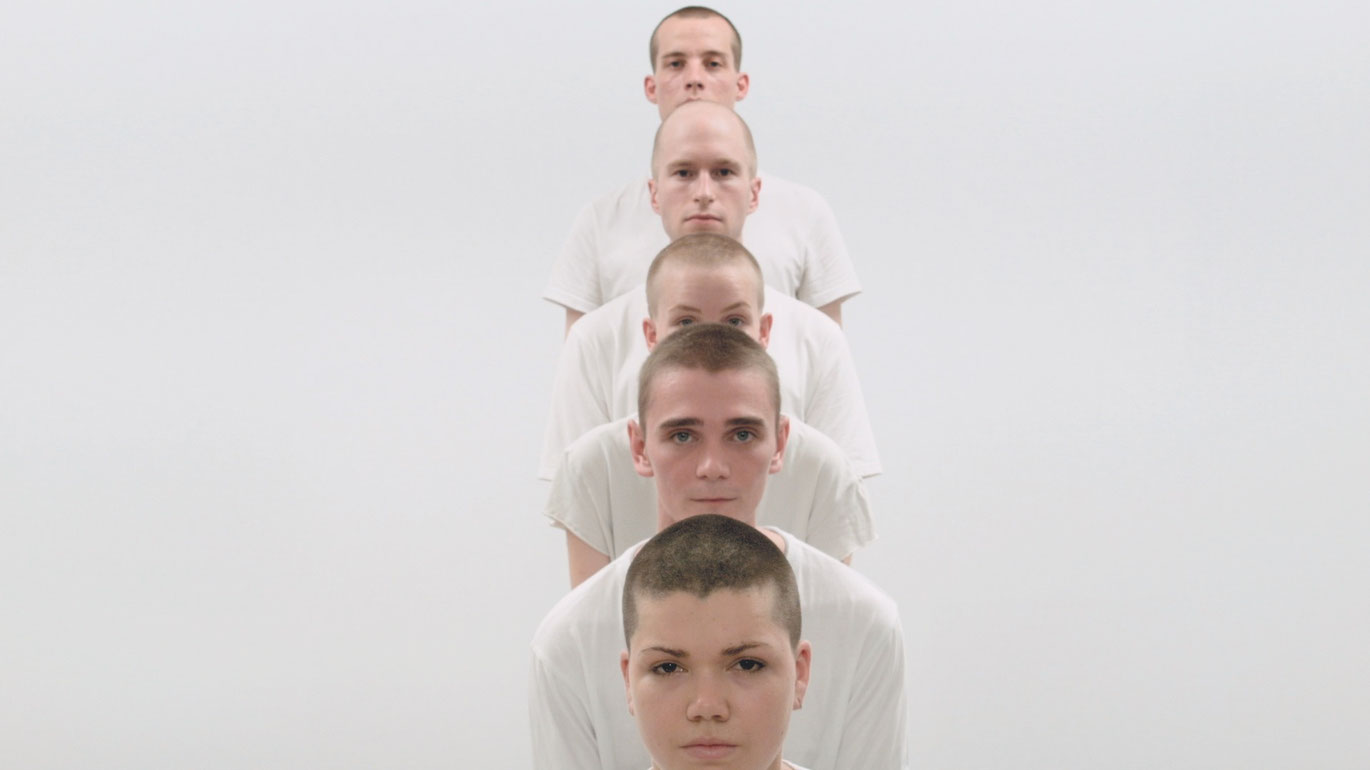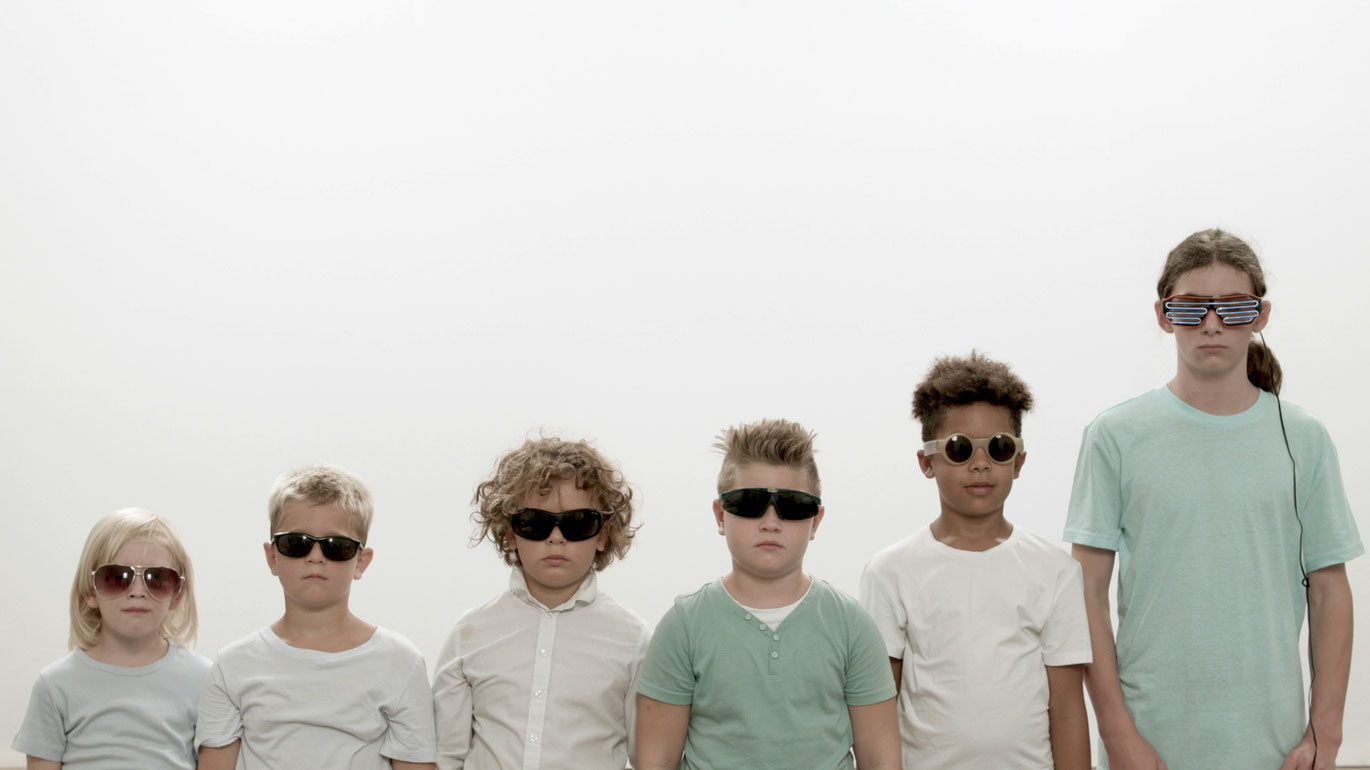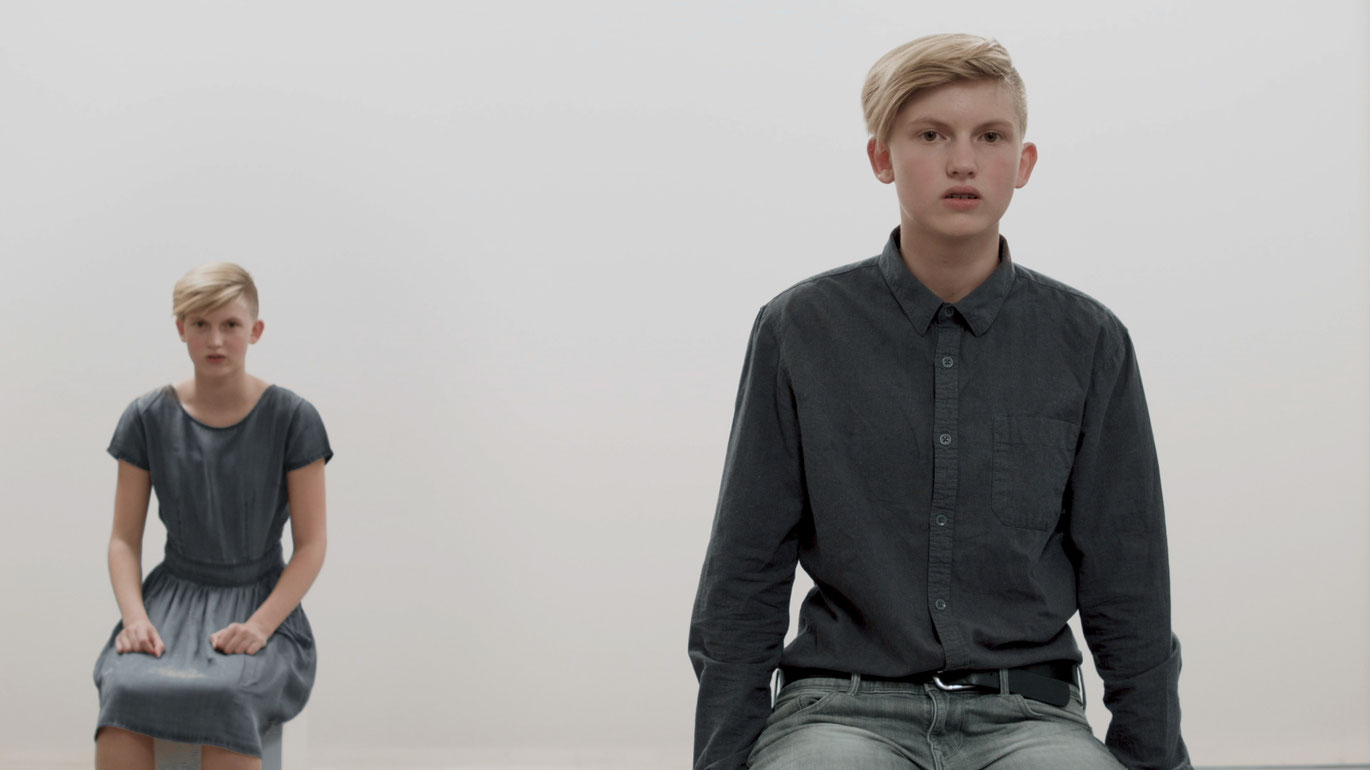perForming me?(!)
The film´s protagonists appear before the camera in order to present an entire spectrum of poses and gestures; common ones and ones represented in the media. What the film then shows is a playful dialogue between a vocabulary of the body language of conventional behavioral forms and the individual deviations and interpretations, which all differ from one another in terms of movement and mimic, allowing the perception of identities. Despite the similar poses and gestures, these identities consist of precisely not being identical - even missing what they supposedly share, thus allowing individuality to emerge, which opposes the issue of identity, presenting it as something for which there is no single answer. Concepts and words that one would use to describe a movement, a face, or a person neither fit with the image nor fit in the image that appeals to a way of seeing that is free from identifying the visible with an order of the (linguistically) conceivable: one sees mainly what deviates, what defies being taken literally, to become something different than a name, a gender, or expression for a socially defined stereotype of identity. In the film, the protagonists have no names and more than one name: they are lots of individuals—children, young people, and adults, whom Luz Olivares Capelle invited to appear before the camera as though in front of a mirror, which rather than mirroring them watches how the seeing and being seen react to one another, how a space opens up between the two that cannot be bridged by any concept of identity, word, or name. Between the language and the bearer of meaning is a gap that the film insists upon: similarity as benchmark for the incomparable, which is all that one can have in common with others. (Andreas Spiegl)
Translation: Lisa Rosenblatt
perForming me?(!)
2018
Austria
30 min



